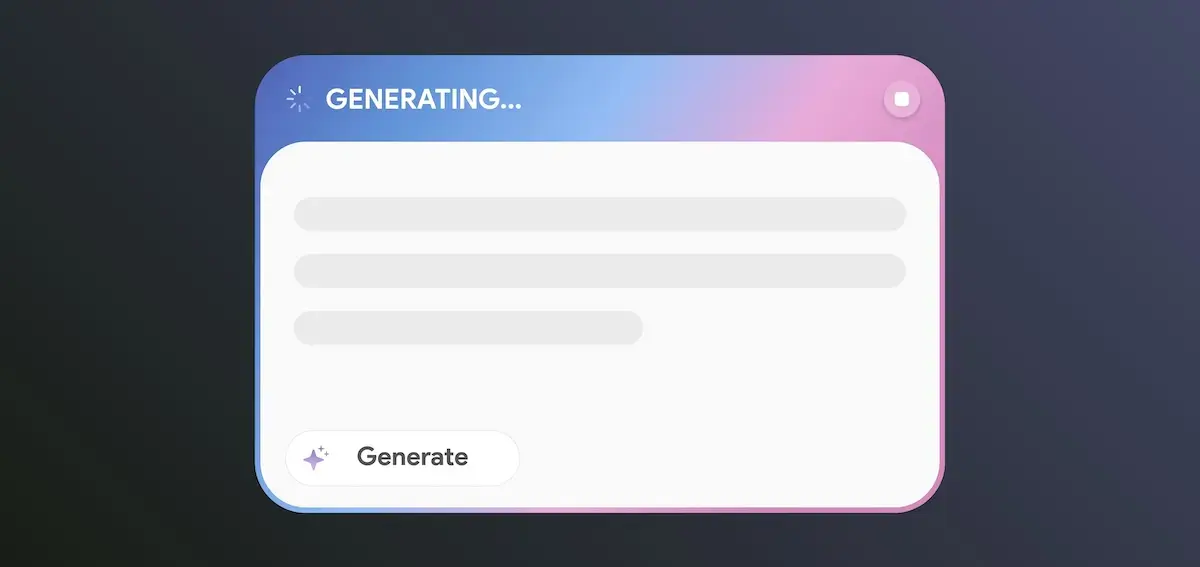Take Control of What AI Says About Your Store
3 Minute Read
New in Nomad: LLM Directive File Support for Our eCommerce Websites

AI is changing how customers search for products. Tools like ChatGPT and Google Gemini are starting to pull answers straight from websites—replacing traditional search results with quick summaries.
These tools are Large Language Models (LLMs)—AI systems trained to read and learn from websites. They’re fueling the rise of “zero-click” searches,” where customers get instant answers from ChatGPT, Google’s AI Overviews, etc. without ever clicking through to your site.
The more clearly they can understand what your site offers, the more likely your eCommerce site is to show up when a customer asks, “Where can I buy pressure gauges in Asheville?”
But here’s the catch: LLMs aren’t crawling every website equally. Big players like Grainger or Northern Tool or Lowe’s? Sure—they’re getting read top to bottom. But a smaller distributor covering Western North Carolina or the Mid-Atlantic? Probably not unless you can provide a helping hand.
That’s where LLM directive files come in. They act like a tour guide—pointing these AI tools to the most important parts of your site, like product categories, product descriptions, return policies, even price. It’s a way to help LLMs understand what you sell, where you sell it, and why you’re relevant.
Nomad’s platform now supports these files, so even if you’re not a billion-dollar brand, you can still show up in AI-driven results—and get found by the customers who may not even know they are looking for you.
What Is an LLM Directive File?
LLM directive files are like a “cheat sheet” for large language models—helping them understand which parts of your site matter most and how to interpret things like product categories, specs, and policies.
They don’t replace traditional SEO tools like robots.txt or sitemap.xml—those are still useful for search engines. But LLM directives are built specifically for LLMs, which are generating more and more answers straight from websites without sending traffic to them.
Here’s how they work alongside each other:
| Tool | What It Does |
|---|---|
robots.txt |
Acts like a gatekeeper — tells search engines what to skip. |
sitemap.xml |
Acts like a map — helps search engines find all your pages. |
llms.txt |
Acts like a tour guide — points LLMs to your most important content. |
Why LLM Directive Files Matter for Your eCommerce Website
-
You show up when customers ask a question
LLMs are answering real product questions—“Who sells replacement gaskets for a model XYZ water heater?” or “Where can I buy bulk cable clamps near Indianapolis?” A directive file helps point them to the right pages on your site—so you’re part of the answer instead of getting left out.
-
Make sure your eCommerce site gets read in the first place.
LLMs don’t treat every site the same. If you’re not a major brand, there’s a good chance they’ll skip over your catalog entirely. A directive file provides an overview and roadmap that makes it easier for the LLM to navigate. Then when that all important question is asked, the LLMs knows who you are and if you are relevant.
-
Help customers buy faster.
When someone asks a question and gets an accurate answer—from product model match to return policy to price—they’re more likely to actually order.
-
Stay visible as search shifts to AI.
Google’s AI Overviews are already live in the U.S.—replacing the top of the search page with answers pulled from LLMs. And tools like ChatGPT and Claude are being used more and more like search engines, especially for product research. LLM directive files help make sure your business gets included, even if nobody clicks.
What LLMs Directive File Formats Are Supported in Nomad?
Nomad eCommerce supports four file types for LLM directives—each with its own strengths, depending on how structured or readable you want the content to be:
| Format | Best For | Description |
|---|---|---|
.txt |
Basic setups | Easy to write and widely supported. Works like robots.txt. Great for listing key URLs and giving a plain-text overview. |
.json |
Structured AI input | Clean, machine-readable format. Good for breaking content into labeled sections like “Products,” “Support,” or “Policies.” |
.yaml |
Readable, structured rules | Similar to JSON but easier for humans to read and edit. Helpful when teams need to tweak or maintain the file. |
.md |
Context-rich summaries | Markdown format. Useful for giving AI tools short summaries, lists, or explanations—like shipping terms or category overviews. |
You can upload these files right in your Site Settings. If this feature is not enabled, Nomad automatically serves a default “Disallow All” file—telling LLMs not to read your site at all.

Coming Soon: Auto-Generated Files
Right now, this feature is best suited for technical users or early adopters. There are already several third-party tools that can help generate these files—like Live Chat AI and SiteSpeakAI—if you want help generating a LLM.txt file.
But soon, Nomad will release its own built-in tools that generate directive files automatically, using your site structure and ERP-connected data.
Whether you want to block LLMs, guide them, or highlight your catalog the right way—we’ll make that easier to do.
The Bottom Line
Your product data, website content, and reputation all matter. And with AI playing a bigger role in how customers find and evaluate suppliers, you need a way to shape what these tools see—and what they skip.
LLM directive files give you that control. Nomad gives you a way to put it to work.